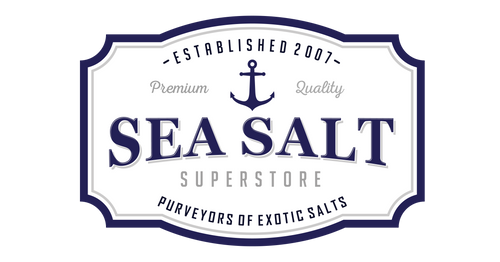When most people think of salt, they likely associate it with dehydration—too much salt can make you thirsty, after all. However, when used appropriately, salt, specifically the sodium it contains, plays an important role in maintaining hydration and fluid balance within the body. Understanding how salt aids hydration and its crucial function in the body can help you make smarter choices for your health, particularly in hot climates, during physical activity, or when recovering from illness.
The Role of Sodium in Hydration
Sodium, which is a primary element of salt, is an essential electrolyte in the body. Electrolytes are minerals that carry an electric charge and are crucial for many bodily functions, including the regulation of fluid balance. Sodium, along with potassium, chloride, calcium, and magnesium, helps maintain the balance of fluids both inside and outside of cells.
The body’s ability to absorb and retain water is largely dependent on sodium levels in the blood. When you consume salt, it dissolves into sodium and chloride ions, which help retain water in the extracellular fluid (the fluid outside of your cells). This balance ensures that your body maintains a proper amount of hydration.
Salt and Fluid Balance: Why It Matters
When you sweat, whether during exercise or in hot weather, your body loses both water and electrolytes, including sodium. This is where the connection between salt and hydration becomes clear: the loss of sodium in sweat can lead to dehydration if it’s not replaced. Simply drinking water in response to dehydration may not be enough to restore hydration levels, because water alone doesn’t replenish the electrolytes lost in sweat.
In order to rehydrate effectively, your body needs not just water, but also sodium (and other electrolytes like potassium). Sodium helps the body retain the water it needs to maintain proper blood volume, which in turn supports healthy circulation and overall hydration. This is why drinks like sports drinks or oral rehydration solutions (ORS) often contain a mix of water, sodium, and other electrolytes: they provide the necessary components to effectively hydrate the body.
Salt and Sweat: How Salt Affects Hydration During Exercise
When exercising, especially in hot and humid conditions, your body loses both water and sodium through sweat. While drinking water is crucial for staying hydrated, excessive sweating without replacing lost sodium can cause an imbalance in your electrolytes. This imbalance can lead to hyponatremia—a condition where sodium levels in the blood become dangerously low. Symptoms of hyponatremia can include nausea, headache, confusion, and in severe cases, seizures or coma.
To prevent hyponatremia and maintain proper hydration during intense or prolonged exercise, athletes are often advised to drink electrolyte-rich beverages that contain both sodium and potassium. These drinks help replenish both the water and electrolytes lost through sweat, improving endurance and reducing the risk of dehydration.
Salt in Oral Rehydration Solutions
Oral rehydration solutions (ORS) are another example of how salt can help with hydration. These solutions, which are commonly used to treat dehydration caused by illnesses like diarrhea, contain a carefully balanced mix of sugar, salt, and water. The sugar helps with the absorption of sodium in the intestines, allowing for better water retention in the body. The salt component ensures that fluid balance is maintained, helping the body recover from dehydration caused by fluid loss due to illness.
ORS has been credited with saving millions of lives, especially in developing countries where dehydration-related diseases are common. The effectiveness of these solutions lies in the combination of water and salt, demonstrating how sodium plays a vital role in hydration, particularly in situations where the body’s fluid levels have been severely depleted.
How Much Salt is Necessary for Hydration?
While salt is necessary for hydration, it’s important to consume the right amount. Too little sodium can result in dehydration, while too much can lead to water retention and high blood pressure. The recommended daily intake for sodium is around 2,300 milligrams (about 1 teaspoon of salt) for healthy adults, though individuals with certain health conditions, such as hypertension, may be advised to consume less.
When it comes to hydration during physical activity or illness, the amount of salt you need will depend on factors like the intensity of exercise, the climate, and the duration of fluid loss. For instance, if you’re sweating heavily during a workout or experiencing fluid loss due to illness, you may need to replace electrolytes with a drink or solution that contains sodium and other electrolytes to avoid dehydration.
Salt and Its Impact on Rehydration after Illness
During illness, especially when dealing with vomiting, diarrhea, or fever, the body loses significant amounts of water and electrolytes. In these cases, salt plays a key role in the rehydration process. Water alone cannot restore the body's electrolyte balance, so an oral rehydration solution or electrolyte drink containing sodium is recommended. These solutions help restore the body's fluid levels more effectively than water alone.
For instance, ORS solutions are often recommended by the World Health Organization (WHO) for rehydrating individuals suffering from dehydration caused by diarrhea or other gastrointestinal issues. The salt and sugar in the solution promote rapid absorption of water and electrolytes into the bloodstream, aiding quicker recovery.
When to Avoid Excess Salt
Although salt is vital for hydration, there are times when it’s important to monitor your intake. If you have high blood pressure or kidney disease, your doctor may recommend limiting sodium consumption to prevent complications. Additionally, if you're consuming salt to maintain hydration during exercise or illness, it’s essential to strike a balance, ensuring that you don’t overconsume, as excessive salt intake can have negative effects on heart health and kidney function.
Conclusion
Salt, in moderation, plays an essential role in hydration. Sodium, a key component of salt, helps maintain fluid balance in the body by assisting in the retention of water. Whether you’re exercising, dealing with illness, or simply looking to stay hydrated, sodium is vital for ensuring that your body stays properly hydrated. However, it’s important to monitor your intake and use the right amount of salt to avoid overconsumption, especially for those with health conditions like high blood pressure. By understanding how salt contributes to hydration, you can make more informed decisions about your health and hydration needs.




